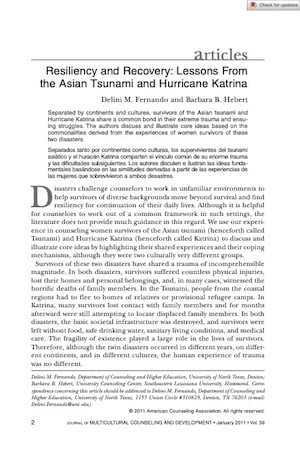Understanding disasters: managing and accommodating different worldviews in humanitarian response

Belief in a Just World
The authors build on the literature on ‘Belief in a Just World’ (BJW), which suggests that people believe the world functions justly. When people experience extreme adversity, however, their belief in a just world can be shaken.
Secondary Trauma
For people with strong religious beliefs, the shattering of their religiously inspired worldview may lead to a secondary trauma if they suffer a crisis of faith. The authors suggest such cases may require specialised psycho-spiritual support for recovery involving building new assumptions and a worldview that incorporates these traumatic events.
Relevance to the local context
The authors argue that for humanitarian responses to be effective they must be relevant to the local context, including an understanding of and authentic engagement with religious beliefs.
Comment:
This article draws on the experiences of humanitarians working in the United States and Australia to explore how religion and religious worldviews impact individuals’ understandings of disasters and their roles in them, as well as how they can participate in rebuilding or reconstructing following crisis. This article builds on the BJW literature to make an important argument to the faith-sensitive MHPSS field; that while religion and spirituality can support religious coping, a faith-inspired worldview can also lead to a secondary trauma when faith is shaken, potentially requiring specialised spiritual support.




